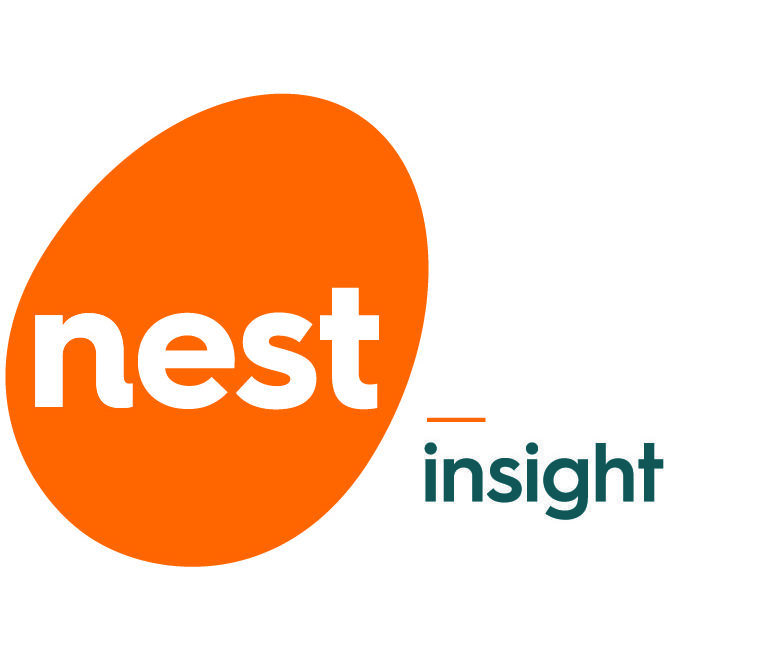Today, Nest Insight has published new analysis into the impact of Covid-19 on low and moderate income savers, in collaboration with the University of Nottingham and Warwick Business School.
With a large near-real time flow of anonymised data covering the jobs and pension savings of over 9.9 million Nest members, and over 870,000 UK employers (as at May 2021), the Nest Insight research unit is able to gain a unique view of changes in the level and frequency of earnings across around a third of the country’s working population.
Since publishing Retirement saving in the UK 2020 in February this year, one of the largest empirical studies of pension saving behaviours in the UK, the research unit has continued to delve into the data to explore whether any specific sub-groups have had a different experience of the pandemic or started to change their savings behaviours. By analysing data up to February 2021, the research draws out three overarching conclusions:
1. Overall workers’ incomes have not fallen significantly, but this situation varies by sector and employment type
Between April 2020 and February 2021, analysis reveals an overall flattening in pensionable pay growth with median growth rates dropping to zero. This suggests that whilst some workers have seen no change in their level of pay, others have experienced a decrease in wages. The data shows significant falls in earnings for certain types of workers during the national lockdowns, with those working in retail, wholesale and hospitality, and manufacturing most negatively affected. Although pay growth ‘normalised’ for manufacturing in Q3 and Q4 of 2020, retail, wholesale and hospitality once again saw reductions in pay growth in November 2020.
Though the overall impact of gender appears to be small, women and younger people have been most negatively affected due a higher representation of these groups in the retail, wholesale and hospitality sectors.
At a household level, analysis also shows that the self-employed, as well as the unemployed and those unable to work due to sickness, were significantly more likely to report that the pandemic has had a negative impact on their family’s incomes, relative to those who were employed full-time or part-time. 61% of self-employed people reported that their income had decreased, compared to 37% of employed people.
Lower income groups were also significantly more likely to report a reduction in household income relative to the moderate income groups, whereas higher income groups reported increased household income relative to the moderate income groups.
2. The pension saving behaviours of automatically enrolled workers have not changed significantly to date
Despite severe disruption to the economy and the labour market, pension saving behaviours have remained largely unchanged:
- Opt-out rates: Between April 2020 and February 2021, opt-out rates increased slightly, peaking at just over 12% before dropping back to the 2019-20 average of 10%. This compares to an overall average, since the start of the auto enrolment policy, of 8%. Whilst the rates have remained very low overall:
- higher average rates can be seen in some industries, including agriculture, forestry and fishing (27%), public administration (21%), finance and insurance (19%), and international councils and bodies (18%)
- the slight increase in opt-outs appears to have been driven by firms with 249 employees or fewer; and
- the biggest change was among those aged 35 to 54, whilst savers aged 55 to 64 and 25 to 34 showed little to no change in behaviour.
Workers can only opt out when they’re newly enrolled, and this usually happens when they start a new job, or an existing employer re-enrols them. Given the disruption in the jobs market over the summer of 2020, it’s not possible to make a like-for-like comparison between the types of individuals opting out before and during the pandemic. It may be that this temporary rise in opt-out rate can be fully explained by the types of jobs and types of workers being enrolled during these times.
- Cessation rates: The data shows a slight decrease in cessation rates during the pandemic.
- Pension withdrawals among over 55s: Withdrawals follow a trend of ‘business as usual’, with behaviours following patterns seen in previous years.
3. A crisis can prime people to the importance of saving
By comparing responses from two financial wellbeing surveys conducted in November 2019 and November 2020, analysis reveals that on average perceptions about the importance of saving for an emergency rose from 85% to 88%. This supports the importance of programmes like Nest Insight’s sidecar savings trial, that are looking for ways to help workers build up emergency savings.
Matthew Blakstad, Director of Analysis at Nest Insight comments:
“The financial impact of the pandemic has so far been mixed. Whilst some have noticed little change, or even become ‘accidental savers’, others will have lost significant amounts of income, and may have had to rely on savings, formal and informal borrowing, going into arrears on bills and taking mortgage holidays. Knowing this, we might expect to see households who are facing financial stress, or fears of future hardship, tapping into long-term savings or stopping pension contributions to help increase their disposable income. But this hasn’t happened. Our data show that there have been no significant changes in behaviour when it comes to workplace pension saving, once again demonstrating the resilience of auto enrolment as a way of encouraging saving.
“The strength of this default savings mechanism, coupled with the clear appetite among the UK workforce to build up emergency savings, suggests that people might value being automatically enrolled by their employer into an emergency savings tool. Later this year, as part of our sidecar savings research programme, we’ll be testing the impact of this approach, and people’s attitudes towards it, through the Financial Conduct Authority’s regulatory sandbox scheme.
“Yet the inertia mechanism that makes auto enrolment so successful, may be a double-edged sword. The findings from this research raise questions about whether some people are continuing to save for retirement, whilst also experiencing pressures on their household finances and potentially accumulating debt. In the next stage of our research, we’ll be examining the interactions between pension saving and debt to address this all-important question.”
Neil Stewart, Professor of Behavioural Science at Warwick Business School, said:
“Workplace pensions savings has proved stable and quite resilient in the face of the Covid-19 pandemic, despite large variations in economic fortunes, with some winners increasing saving and paying down debt and some losers facing large reductions in income and unemployment. The insight provided by Nest data is important in describing the effects of the pandemic on low- and middle-income earners, providing objective data for policy decisions.”
ENDS
Notes to editors
The full analysis shared via our blog series is available here: The impact of Covid-19 on low and middle income savers.
This research was conducted by Nest Insight, Professor John Gathergood and Postdoctoral Research Fellow Jesal D. Sheth of the University of Nottingham, along with Professor Neil Stewart and Research Fellow Chris Firth of the Warwick Business School. This collaboration was made possible by a grant from the Economic and Social Research Council (ESRC) as part of UK Research and Innovation’s (UKRI) rapid response to Covid-19 (grant number ES/V004867/1), and also by the ongoing support of BlackRock, JPMorgan Chase and the Money and Pensions Service, which created the post-doctoral position as part of our wider programme of research on emergency savings and debt.
Opt-out and cessation definitions
Both ‘opt-out’ and ‘cessation’ result in a worker not participating in Nest but they are defined differently based on their timing. A worker may choose not to participate in Nest by opting out during the opt-out window, typically one calendar month after enrolment. The choice not to participate after the opt-out window is considered cessation.
About Nest Insight

Nest Insight is a collaborative research unit set up by Nest Corporation to help understand and address the challenges facing Nest members and other defined contribution savers. For more information visit: nestinsight.org.uk
About our research and delivery partners
The University of Nottingham
The University of Nottingham is a research-intensive university with a proud heritage, consistently ranked among the world’s top 100. The university prides itself in unlocking the potential of its students and offering a life-changing experience. It has a pioneering spirit, expressed in the vision of its founder Sir Jesse Boot, which has seen it lead the way in establishing campuses in China and Malaysia – part of a globally connected network of education, research and industrial engagement. The University’s state-of-the-art facilities and inclusive and disability sport provision is reflected in its status as The Times and Sunday Times Good University Guide 2021 Sports University of the Year. It’s ranked eighth for research power in the UK according to REF 2014, and has six beacons of research excellence helping to transform lives and change the world. Alongside Nottingham Trent University, it also leads the Universities for Nottingham initiative, a pioneering collaboration which brings together the combined strength and civic missions of Nottingham’s two world-class universities and is working with local communities and partners to aid recovery and renewal following the COVID-19 pandemic. To find out more, visit: nottingham.ac.uk
Warwick Business School
Warwick Business School is the largest department at the University of Warwick, delivering courses from Undergraduate and Postgraduate level to MBAs, DBAs, PhDs and an Executive Education programme. Consistently ranked among the world’s best business schools, its Distance Learning MBA has been named number one in the world by the Financial Times for the last three years and The Economist has rated its Full-time MBA the best in the UK six years in a row. Thought leaders in Leadership, Strategy, Behavioural Science, Healthcare, Finance, Future of Work, Entrepreneurship & Innovation, and Sustainability, WBS research is published in the world’s leading science journals influencing Governments, policymakers and industry. To find out more, visit: wbs.ac.uk/
About Nest Insight’s strategic partner
Invesco is an independent investment management firm dedicated to delivering an investment experience that helps people get more out of life. Building on its strong track record in defined contribution research, and its existing partnership with the University of Cambridge Judge Business School, Invesco partnered with Nest Insight to support their ambitious programme of research, publications and events. For more information visit invesco.co.uk NYSE: IVZ








